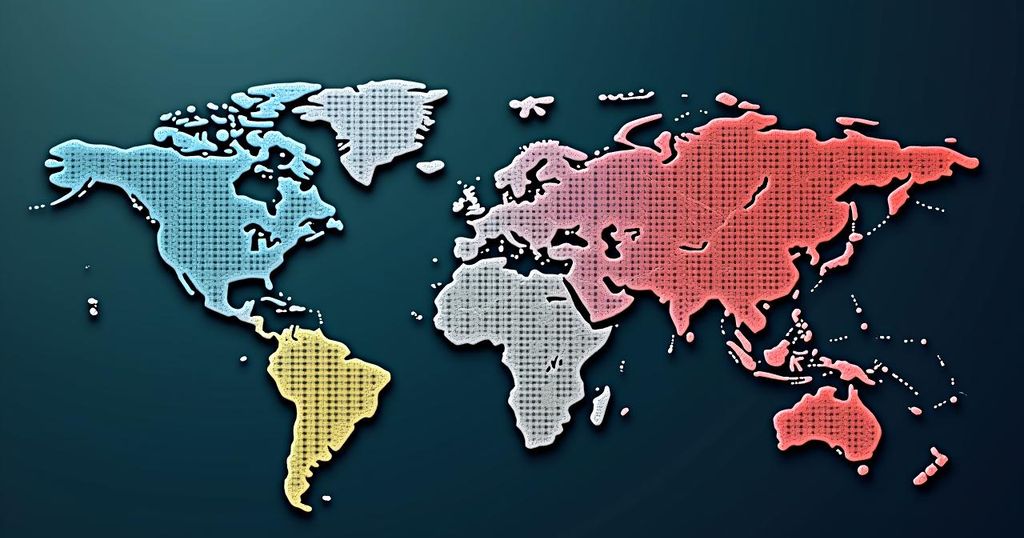Myanmar and China: The World’s Lowest Internet Freedom Scores

Freedom House’s “Freedom on the Net” report reveals that Myanmar and China share the lowest ratings for internet freedom globally, highlighting a continuous decline in freedoms for the fourteenth year. The study indicates that 27 of 72 countries have witnessed reductions in online human rights protections. Kyrgyzstan faces the sharpest decline as the government suppresses dissent, while Iceland is recognized for having the freest online environment. Additionally, the report raises alarms about how censorship affects democratic processes and free expression, particularly in the context of upcoming elections in the United States.
A recent report by Freedom House, a U.S.-based pro-democracy research group, reveals that Myanmar and China are tied for the poorest internet freedom scores globally, marking a significant and alarming trend as global internet freedom has declined for the fourteenth consecutive year. The study, titled “Freedom on the Net,” indicates a troubling erosion of protections for human rights online, with 27 out of the 72 surveyed countries experiencing diminished freedoms. The situation in Kyrgyzstan is particularly concerning, as it exhibited the most drastic degradation in internet freedoms for 2024, attributed to government crackdowns on digital dissent under President Sadyr Japarov’s administration. Notably, Kyrgyz authorities have barred access to the investigative media platform Kloop, silencing reports surrounding allegations of torture against an opposition figure. Moreover, the report emphasizes Myanmar’s descent into a state of extreme repression, whereby the military government has enacted systematic censorship and monitoring of online communications. In response to the increasing online dissent, the military introduced measures in May to disable access to virtual private networks (VPNs), which are commonly utilized to navigate state-imposed internet restrictions. In contrast, China’s low internet freedom score stems from the implementation of the “Great Firewall,” which seeks to isolate the nation from external influences and eradicate content perceived as threatening to the ruling Communist Party. In an attempt to dismiss the report’s findings, Chinese authorities claim that citizens enjoy rights and freedoms in accordance with the law, asserting that the report is baseless and serves ulterior motives. The report also highlighted downgrades experienced across several nations, including Azerbaijan, which restricts free expression online, and Iraq, where governmental repression resulted in the assassination of a prominent activist following a social media post. Alarmingly, three-quarters of the countries analyzed report arrests of internet users for nonviolent expressions of dissent, sometimes resulting in excessively long prison sentences of over ten years. Contrary to these trends, Iceland has retained its distinction as the country with the most liberal online environment, followed by Estonia, Canada, Chile, and Costa Rica. Noteworthy improvements were observed in Zambia, where there was a notable growth in online activism. For the first time, the study evaluated Chile and the Netherlands, both of which demonstrated robust protections for human rights in cyberspace. The report further critiques the United States for its inadequate safeguards against governmental surveillance and has assigned a score of 76 out of 100 regarding the protection of online rights. It specifically points out that at least 19 states are restricting the use of artificial intelligence in election contexts, adversely affecting the information landscape ahead of the impending elections. As the November 5 presidential election approaches, the report underscores how the internet has been significantly altered, with technical censorship hindering opposition parties from effectively reaching constituents and obstructing access to credible independent reporting surrounding the electoral process. Ultimately, over a billion voters face the daunting task of making critical decisions while contending with a censored and unreliable information environment.
The growing concern over internet freedoms is exemplified by the findings in the “Freedom on the Net” report issued by Freedom House. This annual study examines the civil liberties concerning internet use around the world, tracking the deterioration or improvement of internet freedoms in various countries. The report highlights specific categorizations, providing insights into government actions that either support or suppress online speech and participation, contributing to a broader understanding of the state of democracy and human rights across nations. Declining freedoms are often associated with governmental efforts to control information and prevent dissent, even in countries traditionally known for their liberation movements. In this context, the situations in Myanmar and China illustrate an alarming regression in internet rights, coinciding with global trends of authoritarianism and repression.
In summary, the “Freedom on the Net” report indicates a stark and troubling trend of declining internet freedoms worldwide, with Myanmar and China at the forefront as the nations exhibiting the worst conditions for online civil liberties. The study sheds light on the serious implications that governmental oppression can have on public discourse and individual expression, as evidenced by the deteriorating situations in hub nations like Kyrgyzstan and Iraq. Despite these negative trends, countries like Iceland maintain strong protections, showcasing potential paths forward for safeguarding digital rights. As the report points out, the effects of censorship and digital repression not only threaten individual freedoms but also shape the democratic processes within societies globally, necessitating urgent attention and action to protect online rights.
Original Source: www.aljazeera.com








